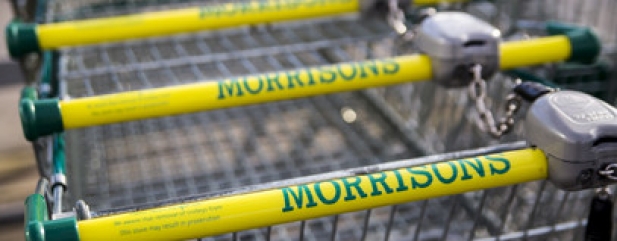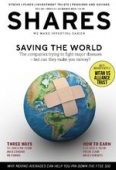Archived article
Please note that tax, investment, pension and ISA rules can change and the information and any views contained in this article may now be inaccurate.
The bull and bear case for Morrisons

Recent share price weakness at WM Morrison Supermarkets (MRW) represents a buying opportunity.
Full year results (14 Mar) confirmed the Bradford-based grocer has become far more competitive under best-in-class CEO David Potts and the upside potential from its emerging wholesale business is underappreciated.
Results (14 Mar) for the year ended 4 February revealed 2.8% like-for-like sales growth, an 11% increase in underlying pre-tax profit to £374m and net debt reduced to £973m, below Morrisons’ £1bn year-end target.
CUT-THROAT COMPETITION
Shareholders were also treated to a 4p special dividend, reflecting Potts’ expectations for continued growth and taking the full year total dividend up 85.8% to 10.09p, and yet the share price declined on the day.
As AJ Bell Investment Director Russ Mould explains: ‘One reason for this is that operating profit fell year-on-year, while all of the profit uplift came from lower financial charges owing to the hard work Morrisons has put in to reducing its debt pile.’
Mould acknowledges that the reduced borrowings are a positive but thinks investors are holding out for evidence of earnings growth from its core operations.
‘After all, Morrison’s operating margin slipped a little, from 2.9% to 2.7%, to suggest the competition remains as brutal as ever,’ Mould adds.
OPEN FOR BUSINESS
Morrisons has a higher customer overlap with discounters Aldi and Lidl compared with peers and a near-halving of free cash flow generation year-on-year to £350m, despite carrying less debt, provided ammunition for critics of the business.
Some might question the quality of that cash flow, with only £132m arising from retail sales with disposal proceeds and improved working capital accounting for most of the rest.
We would point to Morrisons’ strong asset backing, with tangible fixed assets of £7.2bn on its balance sheet, as well as the excitement surrounding wholesale supply. This is becoming a second growth engine for the vertically integrated supermarkets operator and it is on course for £700m of annualised wholesale supply revenues by the end of 2018.
The company already has partnerships with Amazon – ‘Morrisons at Amazon’ is being expanded into more postcodes and cities – and forecourts play Rontec. It is building on this by supplying neighbourhood retailer McColl’s (MCLS) with branded goods through its revived Safeway brand and has also inked a wholesale tie-up with Channel Islands-based Sandpiper.
Important information:
These articles are provided by Shares magazine which is published by AJ Bell Media, a part of AJ Bell. Shares is not written by AJ Bell.
Shares is provided for your general information and use and is not a personal recommendation to invest. It is not intended to be relied upon by you in making or not making any investment decisions. The investments referred to in these articles will not be suitable for all investors. If in doubt please seek appropriate independent financial advice.
Investors acting on the information in these articles do so at their own risk and AJ Bell Media and its staff do not accept liability for losses suffered by investors as a result of their investment decisions.
Issue contents
Big News
- Impressive earnings ‘beats’ from service companies and engineers
- Barclays now in Edward Bramson’s cross-hairs
- What does Putin’s win mean for Russia-focused investments?
- FTSE 100 in a spin amid takeovers, restructures and spin-offs
- Is there more to come from Burford Capital?
- Pound see-saws on Brexit progress and softer price growth

 magazine
magazine









